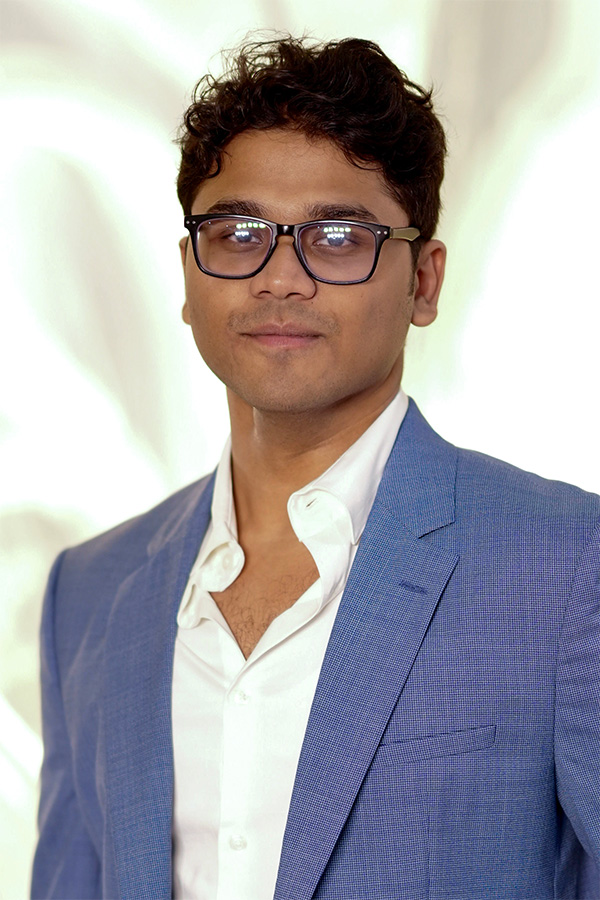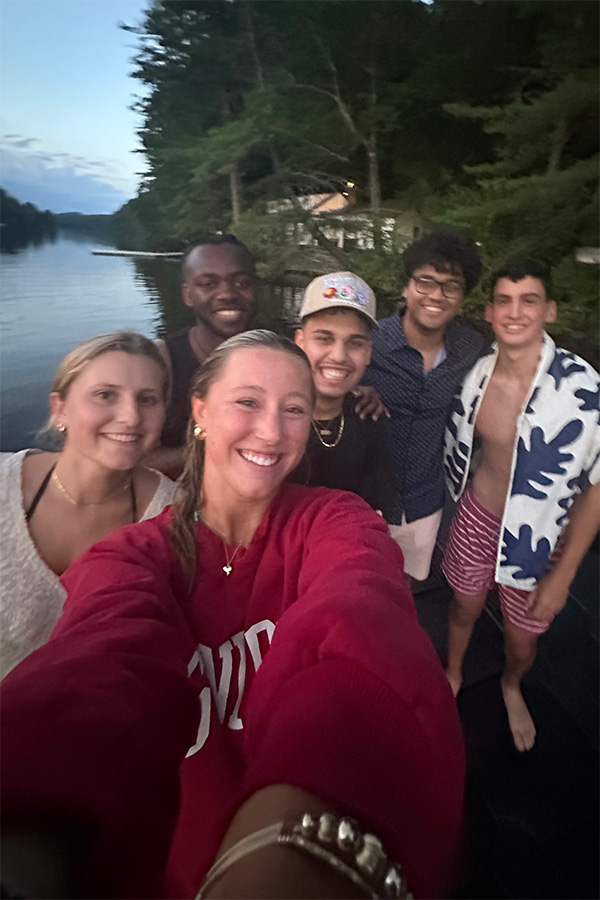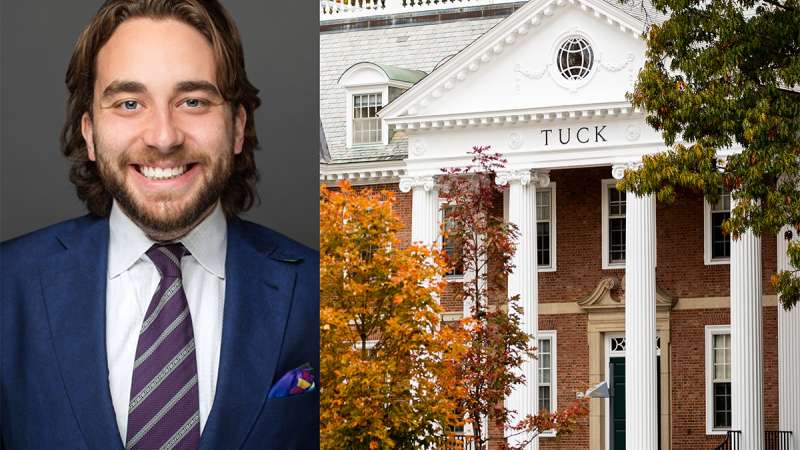
Social Entrepreneur, College Student, and Bridge Alum: Meet Tamhidul Islam
Photo: Tamhidul Islam Bridge'24 conducted a local outreach workshop in a remote Barisal village in Bangladesh to provide high school students and parents with information on higher education opportunities, academic guidance, and success stories from his organization.

With a passion for entrepreneurship and experience as a social entrepreneur in Bangladesh, Tamhidul Islam, Bridge’24 and Dartmouth’26, enrolled in the Tuck Business Bridge Program to further his entrepreneurial journey and gain practical business skills.
Why was it important for you to attend the Tuck Business Bridge Program?
I’ve always been interested in the intersection of theoretical aspects of the humanities and the more practical and tangible applications in the sciences. I am from Bangladesh where the national curriculum forces students to pick among arts, commerce, and science without any overlap across subjects. That is how I found my way to Dartmouth, fueled by my passion for applied economics and sustainability sciences, despite not having taken a single class in either subject during high school. Tuck Bridge added another layer to my interest in becoming a translator between empirical social sciences and their pragmatic applications.
Due to the liberal arts nature of the courses at Dartmouth, my studies as an economics and environmental studies major have been geared towards more theories and concepts rather than hard-coded skills. As a social entrepreneur with two enterprises impacting 1000+ people, I’ve constantly found the need for practical skills very handy in determining success. Tuck Bridge allowed me to interact in group settings, co-learning important tangible skills like corporate finance, financial accounting, and business negotiations. It unlocked a more nuanced perspective within me, allowing me to better understand the socioeconomic issues I aim to address in emerging economies.
What was a highlight of your Bridge experience?
I had a home-ground advantage as a Dartmouth student and utilized it to my team’s advantage to the fullest, making for great bonding moments. I gave my team, who were from all over the country, an extended tour of the Dartmouth campus and some sneak peeks into our traditions. Needless to say, they enjoyed it, which made me very happy! We also went swimming quite a few times throughout the Bridge term, and I think we can all agree that our creativity flowed much better while playing fetch in the Connecticut River. The experience was also coupled with a few rather heated conflicts (which we resolved promptly) and many late-night work sessions (which we all reflectively adored). Hence, undoubtedly my team bonding moments were the highlight of the summer!
Could you share more about your social enterprise and the work you do with it?
I have a social enterprise in the education sector of Bangladesh that connects underprivileged teenagers in rural village schools with volunteer mentors from public universities, offering resources and guidance for the university admissions process. We use a hub-and-spoke model, establishing bases in the public universities closest to highly concentrated villages to find volunteers there. Our process is quite self-sustaining, and many students who completed it return as volunteers. Similarly, it is incredibly rewarding because we hear stories that we can potentially help change. I’ve seen girls who were not allowed to eat proteins at home become doctors, 16-year-olds who didn’t know what a computer mouse was become computer science majors, and kids who were once seen as good-for-nothing turn into engineers. More often than not, all that these kids need is just some spare books, a little bit of academic tutoring, and above all—someone who believes in them. That’s where we come in!

Tamhidul Islam and his Bridge capstone team at the Connecticut River.
How do you balance the responsibilities you have there while also being a full-time student?
Well, it’s anything but easy! Over time, as my responsibilities in other aspects of life have widened, my role has transformed accordingly. From being a mentor who used to go out to the villages a couple of times each month, I’ve turned into a more behind-the-scenes person. Now I mostly deal with logistics and ideation. Primarily, I do a lot of grant-writing and application work, scout out networking opportunities, and help with curriculum building and other management work. The organization has pivoted itself to sustaining without my active need and I could not be any prouder of how it’s doing now. When back at home, however, I would often go around hosting workshops, talks, and other sessions while also doing a bunch of in-person meetings. In the end, the balance comes down as a multiplier of passion and dedication to the cause. And, as someone extremely personally tied to this belief and community, I rarely have a hard time finding incentives!
What inspired your passion for entrepreneurship?
My parents did an unbelievably great job of exposing me to the real world and its problems from an early age. Through the stories of struggle I heard from my father, and things I saw my mother and sister having to deal with in Bangladesh—I was never too far from the problems. I grew up having an extreme distaste for the idea of arbitrary privileges and always wanted to do something about it. While I admit, as I have gotten older, I have become less and less optimistic about how much we can change the state of inequitable resource allocation and discriminatory institutions, I still want to walk down the path of my idols—Sir Fazle Hasan Abed and Dr. Yunus—to do as much as I can. My exposure to the problems of my ancestral villages, and my family paired with my principally motivated rage against the realities of the world incentivized me to pursue this journey. As for why in an entrepreneurial manner—one has no choice but to be extremely resourceful and creatively rigorous when trying to work around the norms of the system.


